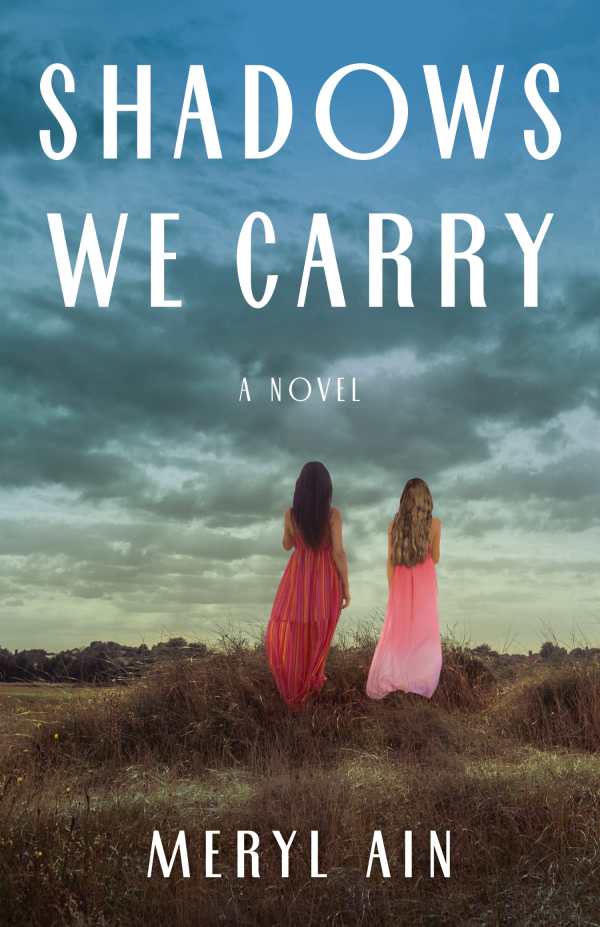Shadows We Carry
Shadows We Carry is an insightful novel that probes the complex, painful question of what it means to be Jewish in a post-Holocaust world.
In Meryl Ain’s ravishing historical novel Shadows We Carry, twin sisters in a Jewish immigrant family confront family secrets as they come of age in turbulent 1960s New York.
This complex, multifaceted story is centered on Polish-born fraternal twins Bronka and JoJo. Born of a Jewish father and a non-Jewish mother, the girls are not considered Jews despite their traditional upbringing. JoJo is less affected by this, but Bronka has a deep longing to create a traditional Jewish home and family.
The book opens with a potential scandal as JoJo and Bronka convene their friends to seek advice on JoJo’s out-of-wedlock pregnancy. JoJo’s only recourse, to confess to her parents, results in a stormy scene as her father, haunted by the ghosts of his first wife and unborn child who were killed in a pogrom in Poland, explodes with “How could you do this to ME?” Abortion—not only illegal, but seen as giving Hitler another win—is not an option, and JoJo gives up her dream of an acting career to marry and raise her child. Meanwhile, Bronka seeks out a career in journalism and meets resistance from American men with a vested interest in keeping women in the home.
This sensitive novel engages a range of emotions as it probes the generational effects of the destruction of war. Its multifaceted viewpoints include those of a former Nazi guard at Auschwitz who is in hiding among the New York Jewish community and of a handsome, mysterious Catholic priest who attracts Bronka’s attention. Rich, subtle descriptions of people’s inner and outer worlds pervade the book, although inner lives take center stage. For example, while Bronka’s physical appearance is given minimal importance, the description of her brushing her long, dark hair is filled with blossoming sensuality.
Contrasts increase the book’s narrative tension as America’s young Jewish women confront both the old-world views of their immigrant parents and the vestiges of patriarchal America. Historical facts build into the story line, supporting a sense that the nation itself is rent by conflicting ideologies. Its involvement in the controversial Vietnam War; racial, ethnic, and gender struggles; the assassinations of national leaders; and the weakening of family and religious ties all leave the sisters’ generation longing for love, purpose, and community, unsure of where to turn.
The book is also insightful in its probing of the complex, painful question of what it means to be Jewish in a post-Holocaust world. The twins’ family feels guilt over what they left behind by assimilating into a new culture, religion, or family. And people’s conversations are intimate and natural; their emotions are palpable and heartfelt. Still, the need to convey information from the previous novel in the series leads to some pedantic exchanges, while a few awkward sentences (in one, a dress seems to have knee-skimming sleeves) and a pronunciation inconsistency are distracting.
While conflict seems to reign in their lives, the girls’ story ultimately affirms that love rules. Indeed, love, in time, brings each sister to a comfortable place in her family, community, and own heart, helping to make Shadows We Carry a compelling historical novel in which the ghosts of the past, when not dealt with, have the power to derail people’s futures.
Reviewed by
Kristine Morris
Disclosure: This article is not an endorsement, but a review. The publisher of this book provided free copies of the book and paid a small fee to have their book reviewed by a professional reviewer. Foreword Reviews and Clarion Reviews make no guarantee that the publisher will receive a positive review. Foreword Magazine, Inc. is disclosing this in accordance with the Federal Trade Commission’s 16 CFR, Part 255.

